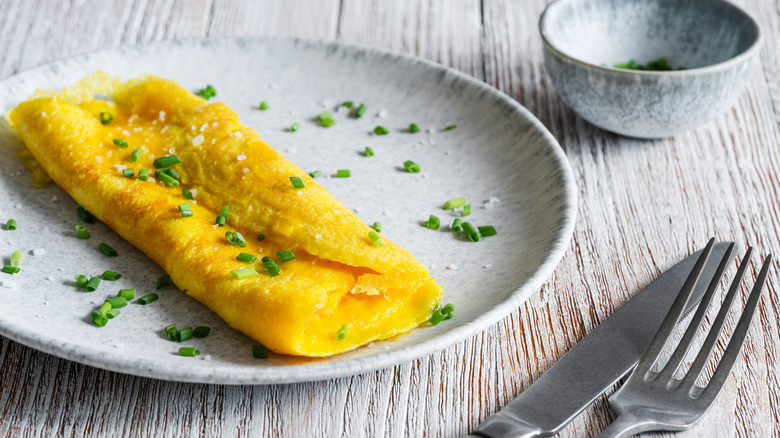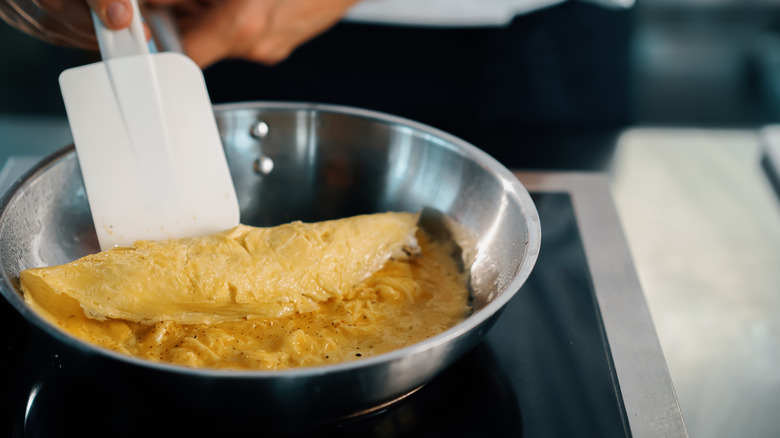The Simple Swap To Easily Upgrade Your French Omelets
Despite its simplicity, the French omelet is a deceptively tricky dish to perfect. Unlike the fluffy, golden American omelets, the French version is made with only butter and eggs and rolled into a delicate log. The key difference between French and American-style omelets, however, is the texture — French omelets are much softer and silkier. While a classic French omelet is already a luxurious breakfast, Food Republic spoke with Mimi Nguyen, founder of Cafely, to find out how one simple ingredient — duck eggs — can take your omelet to the next level.
"Duck eggs have bigger, richer yolks, so French omelets end up slightly more creamy and [custardy]," she explained. Besides just the extra decadent texture, using duck eggs can also help if you've run into the issue of omelets falling apart. According to Nguyen, "Their whites are a tad [stiffer], so they hold their shape more than chicken eggs."
To make your French omelet with duck eggs, whisk your eggs and salt in a bowl and preheat a non-stick skillet with butter over medium heat. Then, add your eggs and stir vigorously while shaking the pan in order to form small, creamy egg curds. Once the duck eggs are softly scrambled, roll the omelet into a log and serve. If you want to get the intended almond shape, grab a dish towel, the key to Bobby Flay's rolled omelet.
Tips for making a duck egg French omelet
If you're struggling to nail your duck egg omelet or simply want to enhance its flavor, a few key tricks can make all the difference. First, keep in mind that duck eggs will cook differently than chicken eggs. "[Duck eggs] will tolerate lower heat and longer cooking because they are more fat-rich," Mimi Nguyen said. Their extended cook time and higher fat content are primarily due to their larger size. Because of this, be sure to adjust your recipe accordingly; for instance, swap two duck eggs in place of three chicken eggs for your omelet.
When it comes to flavor and texture, Nguyen noted how bringing out the natural flavors and creaminess of the duck eggs is key. "I adore a little trick I have of adding a splash of cream or even a small dollop of crème fraîche to enrich that naturally smooth texture," she explained. "Because they are so rich, you don't want to over-accessorize with filling — fresh herbs and a bit of cheese will be fine."
Chives or parsley are both great options to brighten the dish, and a soft, mild cheese like goat cheese or brie will complement the soft creaminess of the duck eggs. As Nguyen put it, "Let the [duck egg] flavor be the star!"


